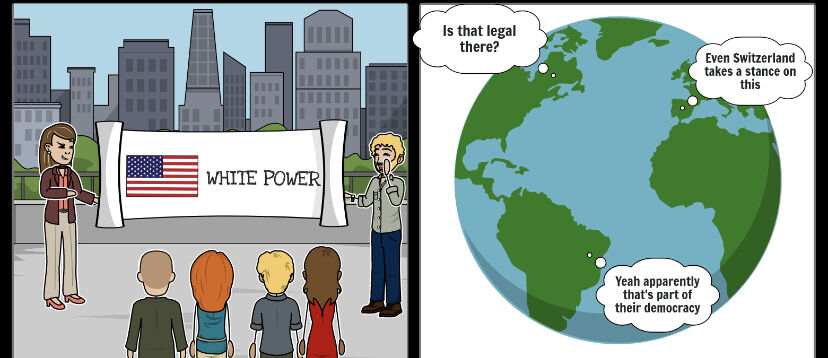New DEI Rhetoric Course on Hate Speech
The United States does not regulate hate speech.
December 15, 2021
Billie Murray, Ph. D., of the University’s Communication Department will complete her first semester of teaching the course known as Rhetorics of Hate & Free Speech, which she developed to address diversity, inclusion and equity (DEI) issues in the United States.
The class focuses on discourse involving hate speech and the legality of free speech in the United States. Students examine such discourse through a rhetorical lens. The course also includes the evaluation of rhetorical theories on how to combat hate speech.
The syllabus reads, “because ensuring minoritized peoples’ access to spaces of democracy is of central importance, we will engage in a critical exploration of the communicative systems that enrich and hinder participation in public life.”
Due to her research of social protests, Murray wanted to develop such a course for several years but found inspiration after the Black Lives Matter movement flourished in 2020. The University also established a course development grant for anti-racist perspectives, which she applied for and received. The grant allows Murray to teach this course for both the fall and spring semesters for two years.
Murray’s book, “Combating Hate: A framework for direct action,” was also completed in time for the first class. It had taken eight years of research and writing to complete.
“I used last summer, the summer of 2021, to develop the course,” Murray said. “It became a lot easier because I had finished my book and I could incorporate the book with my research into the course.”
One of the highlights of this course is the final project. Murray is trying a new approach and has allowed her students to develop their own project addressing hate speech.
A majority of students in the class have centered their projects around the Villanova community specifically. Others have taken a more general approach to share key themes of the class with community members.
Junior Kat Burke designed political cartoons for her final project. She wanted to emphasize the fact that the United States is one of the only Democratic nations to not regulate hate speech.
“When I showed my friends the cartoons, they were shocked to see that free speech is not so great and amazing for everyone,” Burke said. “There are issues that need to be addressed in our country, and I hope my cartoons get that idea into the viewer’s mind.”
The class will continue to be updated as each semester concludes. The main goals, evaluating hate speech under the First Amendment, will remain the same.



